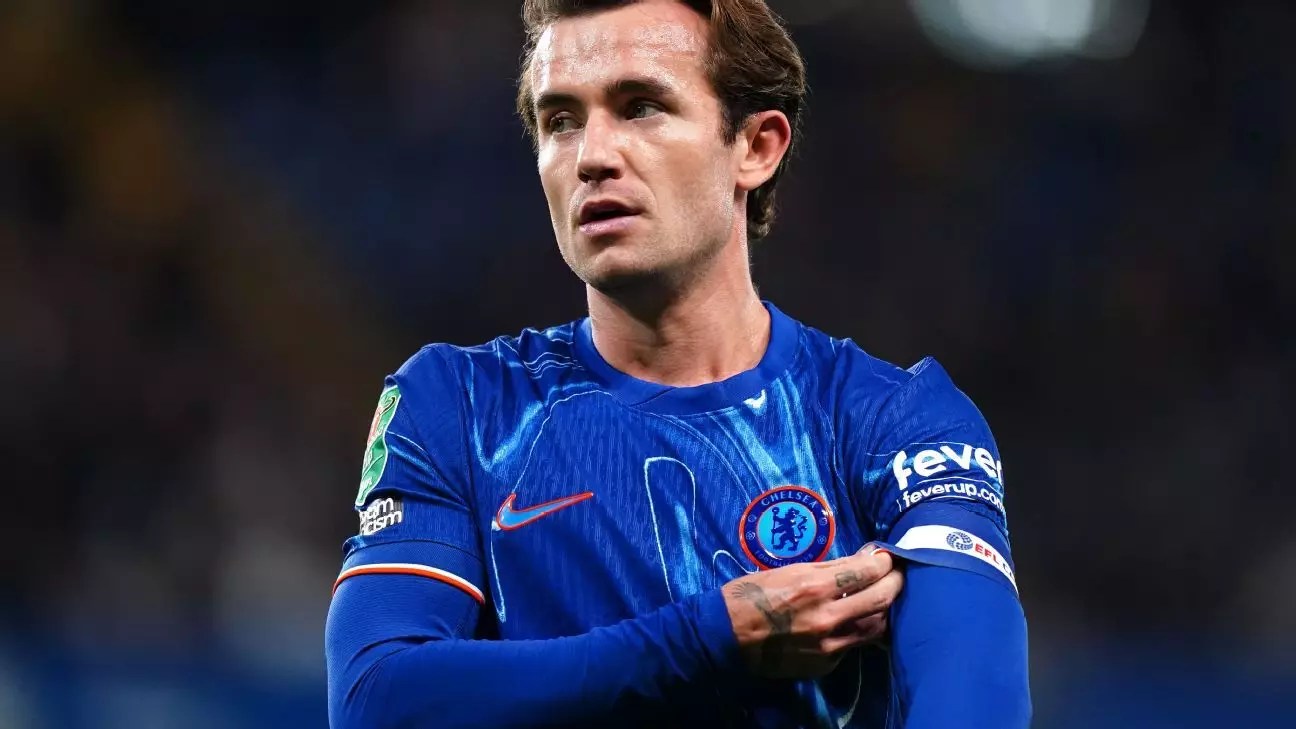The landscape of football, particularly in clubs like Chelsea, is often shifting and tumultuous. Decisions made by management can resonate deeply through the lives of players, affecting their careers and opportunities both on and off the pitch. In a recent revelation by Chelsea head coach Enzo Maresca, the stark reality of Ben Chilwell’s situation has become a focal point. With the Argentine tactician expressing a mix of shame and professional detachment, the dynamics of player treatment under his regime raise important questions about strategy and loyalty in football.
Enzo Maresca’s admission of feeling “shame” regarding Ben Chilwell’s situation speaks volumes about the often overlooked emotional aspect of professional sports. Despite being a seasoned full-back who has played 70 Premier League matches for Chelsea in the past four years, Chilwell has found himself relegated to the sidelines under the current managerial strategy. His only appearance this season has come in the Carabao Cup, starkly contrasting with his previous contributions to the squad. This is not merely a statistical observation; it reflects the challenges faced by players who suddenly find themselves out of sync with their team’s strategies.
Maresca’s comments illuminated his belief that while Chilwell possesses commendable professional attributes, he lacks the versatility required to fit into the coach’s game plans. Acknowledging the hard work and dedication of the England international, Maresca’s rationale for the exclusion hints at a broader trend within modern football—prioritizing tactical flexibility over individual merit.
Maresca’s strategic approach positions him as a coach who values adaptability in his players. While he acknowledges Chilwell’s skills, he emphasizes the importance of players performing multiple roles on the pitch. The absence of full-backs who are “going up and down” – as Maresca unambiguously articulated – suggests that his vision for the team includes a specific style that Chilwell may not fit. This raises a larger question: Should the emphasis be placed on a versatile player’s ability to contribute to various roles, potentially at the cost of sidelining talent?
Moreover, the mention of younger players like Renato Veiga adds another layer of complexity. With Veiga reportedly unhappy with his role at Chelsea, the concern for player morale amid evolving strategies becomes ever more pressing.
With Chelsea’s current record —winless in five Premier League outings— the pressure on Maresca will only intensify. The necessity to find a well-balanced team that leverages all available talent while also fostering a positive culture is crucial but difficult. As the coaching staff seeks results, decisions that exclude seasoned players like Chilwell risk creating deeper fissures within team dynamics and fans’ trust.
Ultimately, the saga of Ben Chilwell underlines the critical balance between personal emotions and professional decisions in football management. While Enzo Maresca’s approach hints at long-term strategies that may illuminate future successes for Chelsea, the immediate ramifications for players like Chilwell cannot be ignored. Understanding and navigating these turbulent waters will be essential for fostering a cohesive team environment that not only aims for victory but also honors the contributions and aspirations of all players involved.


Leave a Reply